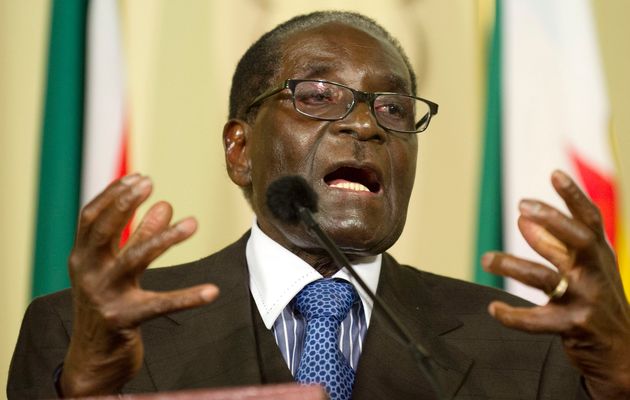
Image by: Foto24 / Deaan Vivier / Gallo Images
Zimbabwe’s President Robert Mugabe said yesterday that he welcomed Western re-engagement in his country’s economy which was ready for ”a massive economic takeoff”.
Giving his state of the nation address in the capital Harare, Mugabe, 91, also called for the strengthening of ties with multilateral institutions, including the International Monetary Fund and World Bank.
“My government values re-engagement of the Western world in the Zimbabwean economy,” he said in the first such statement in a decade-and-a-half of strained relations with the US and Europe.
Mugabe said he planned to amend the country’s investment laws, a move that might be seen as a climbdown from the tough stance on indigenisation.
Several measures, such as amending the Companies Act to increase the ”ease of doing business” and a new procurement bill, have been given a December deadline by Mugabe.
He said the government had a plan to revive agriculture, including cotton farming, and to expand the mining industry.
”The country is set for a massive economic take-off,” Mugabe said.
His comments follow retrenchments, by the government and private companies, of an estimated 20000 workers in recent weeks.
Mugabe admitted that there had been a shift in income generation for the public. ”The small to medium sector has become the source of livelihood,” he said.
Zimbabwe owed lenders about $8.4-billion, Finance Minister Patrick Chinamasa said late last year. The IMF began a staff-monitoring programme in Zimbabwe in 2013, its first formal contact with the country in more than a decade.
The economy would probably expand by 1.5% this year from an initial projection of 3.2%, Mugabe said, blaming the drought.
Mugabe, who has governed the former British colony since 1980, said his government would create an “anti-corruption trust” to battle graft, which he said was “killing the country”.
However, civic society activists accused Mugabe of avoiding human rights issues such as the disappearance of journalist-cum-civic rights defender Itai Dzamara.
”Mugabe skirts human rights issues, and falsely claims [an] anti-corruption stance,” said Dewa Mavhinga of the Human Rights Watch.
Dzamara was abducted in Harare on March 9 after he had led a solo campaign calling on Mugabe to step down. Rights groups and opposition politicians have suggested that state agents were involved in the abduction.


